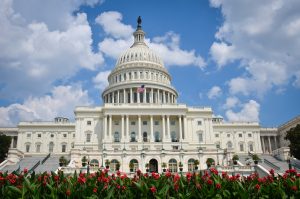 This year, the JRCLS Religious Liberty Day will feature two new religious liberty panel discussions starting at 4:00 p.m. and ending at 6:30 p.m. at the Mayflower Hotel on 5th Oct.
This year, the JRCLS Religious Liberty Day will feature two new religious liberty panel discussions starting at 4:00 p.m. and ending at 6:30 p.m. at the Mayflower Hotel on 5th Oct.
The first panel at 4:00 p.m. will address the economic impact of religious liberty, as well as diversity training for business leaders interested in promoting religious diversity in the workplace. This panel will feature Brian Grim, Nathan Walker, Debbie Marriott Harris, and Paul Lambert.
The second panel at 5:20 p.m. will address promoting religious liberty within your personal sphere of influence, and provide updates on religious liberty legislative initiatives. This panel will feature Tim Schultz, Montse Alvarado, Elder Keetch, and Thomas F. Farr. These panels will be open to the public and free of charge. See more details and bios below.
7pm Awards dinner for Baroness Elizabeth Berridge requires registration.
Economy Panel (Intro by Brian Grim)
One year ago, my daughter and I published a groundbreaking study on the $1.2 trillion U.S. religion economy that not only has been made into an award-winning short film but was also covered by scores of news outlets including the Washington Post, Fox Business News, NPR, BBC, Business Daily, etc.
Some of the coverage went viral. The UK Guardian’s story on the research, for example, was re-shared 18,833 times. By comparison, its headline story on Nov. 9 2016 announcing that “Donald Trump wins presidential election” was shared just 17,126 times. So it’s fair to say that the Guardian’s readers found the US election results surprising and perhaps even shocking. But by these metrics, they found the news that religion contributes to the economy even more shocking.
At the same time, Andrew Soergel, the Economy Reporter for U.S. News & World Report, noted that this religious economic boost to the U.S. economy may be in danger. His article’s title summarizes his fear: “Could Religion’s Decline Spell Damnation for the U.S. Economy? As America loses its faith, the domestic economy could pay the price.”
One of the additional knock-on effects of a less religiously active population is that support for religious freedom is less robust. And this is also an economic weight because another study that colleagues from BYU and I published found that religious freedom is one of only a handful of factors that is independently connected to economic growth. The study also found that the vast majority of pillar of global competitiveness – as measured by the World Economic Forum – are stronger in in countries with high respect for religious freedom.
In addition to those two studies, I’ll mention two more studies to help kick off our discussion. A 2013 national survey found that 36% of American workers have experienced or witnessed workplace religious discrimination. That sounds like a bigger problem than people recognize.
And indeed it is, as I found in a recent analysis of U.S. data. Religious discrimination cases in the workplace have more than doubled over the past two decades. In 2016, there were 3,825 religion-based charges filed with the U.S. Equal Employment Opportunity Commission (EEOC) compared less than half that number (1,709 ) in 1997. By way of comparison, charges of LGBT-based discrimination, which have also been on the rise, numbered 1,768 in 2016, fewer than half the number of religious discrimination complaints. While the corporate world has paid significant attention to LGBT issues with most corporations rolling out major plans to address discrimination based on sexual orientation, there are very few corporations – if any – paying equal attention to discrimination based on employee’s religion or belief.



